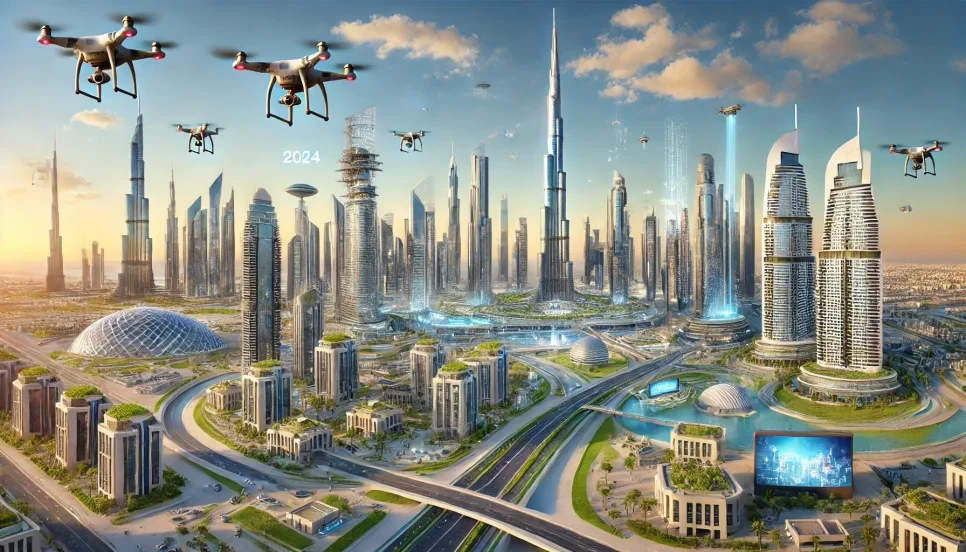The United Arab Emirates (UAE), particularly Dubai and Abu Dhabi, are among the most attractive and stable real estate markets in the Middle East. As we enter 2024, the real estate sector in the UAE faces new shifts and challenges driven by global economic and geopolitical factors. But what does the future hold for the UAE's real estate market amid these changes? In this article, we will analyze potential trends and the impact of key economic factors on this crucial sector.
1. Political and Economic Stability Boosts Confidence
One of the key factors influencing the future of real estate in the UAE is political and economic stability. The UAE has maintained its position as a stable country in the region, thanks to its robust government policies. In 2024, the ongoing massive government investments in infrastructure and major projects are expected to drive increased demand for both commercial and residential properties.
Additionally, the government’s focus on economic diversification and reducing dependence on oil will further strengthen market confidence. The country's aim to attract more foreign direct investment, especially in sectors such as technology and logistics, will create additional demand for office and industrial properties.
2. Growing Demand for Luxury Residential Properties
The luxury residential property sector is expected to witness significant growth in 2024, especially in Dubai and Abu Dhabi. Dubai is a destination for wealthy individuals and foreign investors, thanks to its luxury projects and advanced infrastructure. As the global economy continues to recover and more high-net-worth individuals seek safe havens for their investments, demand for luxury apartments and villas will remain strong.
Moreover, the UAE’s recently launched Golden Visa program, which offers long-term residency to investors and entrepreneurs, will further enhance the appeal of luxury real estate as a stable investment option.
3. Technology and Innovation in Real Estate
Technology continues to shape the future of the real estate market, with digital transformation playing a key role in the sector's development. In 2024, the UAE market is expected to see a greater adoption of technology in real estate processes, including artificial intelligence and blockchain. The use of these technologies will help improve the transparency of real estate transactions and reduce administrative costs, making the market more attractive to investors.
Furthermore, virtual and augmented reality are changing the property buying experience, allowing buyers to explore residential and commercial units through advanced virtual tours, saving both time and effort.
4. The Impact of Inflation and Interest Rates
Despite the UAE’s overall stability, global inflation and rising interest rates could impact real estate demand in 2024. Higher interest rates will increase the cost of borrowing, which may limit some buyers' ability to finance property purchases. However, the UAE market may exhibit relative resilience due to the presence of a large segment of wealthy investors who rely less on loans.
Additionally, global inflation could drive up construction costs, potentially leading to higher prices for new properties. This could affect supply and demand in the market, adding further pressure on consumers and developers.
5. Demand for Commercial and Industrial Properties
As the UAE continues to strengthen its position as a global trade and logistics hub, demand for commercial and industrial properties is expected to grow. Projects like the Jebel Ali Free Zone and industrial areas in Abu Dhabi are part of the government’s strategies to support global trade. Moreover, the upcoming Dubai Expo in 2025 will further boost demand for offices, hotels, and commercial facilities in the emirate.
Thanks to sustainable economic policies and a focus on diversification, the future of real estate in the UAE in 2024 looks promising, despite global challenges. Technological innovation and continued government investments will help maintain the market's attractiveness to both local and international investors. The demand for luxury and commercial properties is expected to grow, driven by economic shifts and supportive government policies.
Sustaining this momentum will be key to achieving long-term stability and sustainable prosperity in the UAE’s real estate market.








Add New Review (Be the first to write a review)
Reviews
سوق العقارات مزدهر بشكل وايد يتوسع